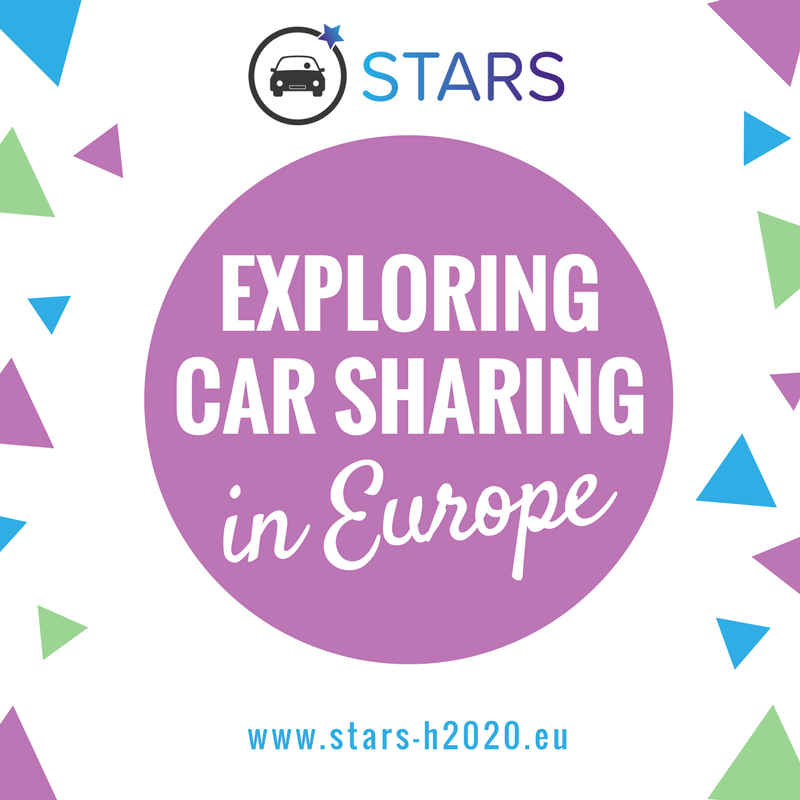The H2020 project STARS (Shared mobility opporTunities And challenges foR carsharing European citieS) has begun to draw the picture of car sharing in Europe, focusing mostly on the multidimensional services offered today and defining five basic types of car sharing business models.
Exploring and boosting the diffusion of car sharing in Europe are the main objectives of the STARS project. The knowledge gained in the project will be used to design a policy toolkit to help European mobility stakeholders and policymakers implement the most appropriate car sharing services. That’s why during the first year of STARS, it was necessary to have a clear picture of the current car sharing scope in Europe. Overall, the project will analyse the car sharing market, measure the benefits of the different services and compare their costs, as well as study user profiles and behaviour.
After building a database that includes information from 25 countries (fleet size, characteristics, typologies of consumers…), an online survey was sent to car sharing organisations that are active in 20 specific cities in Europe. The analysis of the data and the results of the in-depth questionnaire has led to a multidimensional classification of European car sharing (available on the project website in the months to come).
Furthermore, an analysis of car sharing business models in Europe was carried out. Initial results identified the following five models:
– Free-floating within an operational area
– Free-floating with pool stations
– Round trip, home zone based
– Round trip, pool station based
– Peer-to-peer and community schemes
Although it is difficult to foresee which model could become dominant tomorrow, these results will be relevant for the future research conducted in STARS. Shared mobility, and more specifically car sharing, is faced with a wide variety of innovation schemes in terms of how members can join the service and pay through various mobile applications for instance. In addition, electric and autonomous vehicles are innovations that could lead, or not, to car sharing success stories, depending on the development of new technologies and the users’ adoption.
It is important to note that many car sharing services have established strong partnerships, such as with car manufacturers or major rental companies. The impact of car sharing on the car industry and the automotive market will be the next main focus of the research activities carried out in the project. For the first time, the implications and impacts of car sharing rather than on the implementation of the service itself will be considered. Impacts on other transport modes (private car, bike, walk, taxi, public transport…) will also be assessed, and impacts in terms of congestion, greenhouse gases, accessibility and social cohesion will be quantified.
Launched in October 2017, STARS brings together experts in the fields of transport engineering, environmental psychology and industrial economics. Their work will serve as a basis to design and distribute a policy toolkit that will include guidelines and recommendations to implement the best car sharing services in Europe, maximising environmental and social benefits while making cities better and more affordable places to live in.
Post originally published on the CORDIS website | 20 June 2018
Read the original article by clicking here.
Comments are closed.





